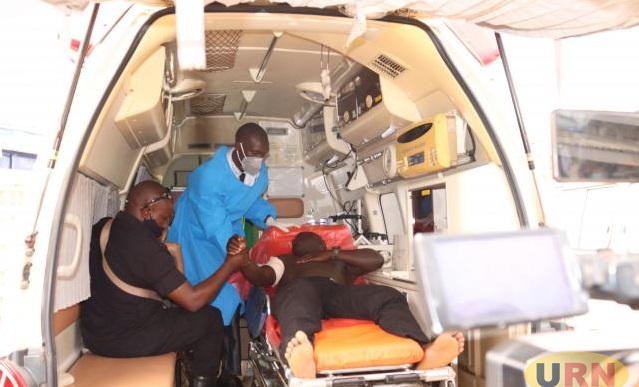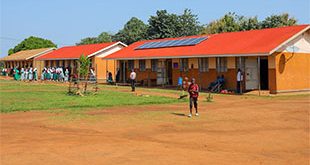
Kampala, Uganda | THE INDEPENDENT | Despite the availability of both national and regional emergency medical numbers, many Ugandans remain unaware of how to access these vital services—an oversight that could have life-threatening consequences in urgent situations.
A Sauti Za Wananchi report by Twaweza, a non-governmental organization that tracks citizen’s views on a wide range of issues has found that as many as 95 percent of Ugandans remain unaware of the critical medical emergency contact.
“Very few citizens (5 percent) are aware of the toll-free number to call in case of a medical emergency. Slightly more than half of those aware (3%) know such a number exists but cannot recall the actual number. The vast majority totaling 95 percent are not at all aware of the number,” the report noted.
Currently, in the event of a medical emergency, citizens are expected to call the 911 hotline, which is managed by the police. In addition, the Ministry of Health has deployed several other toll-free numbers in different regions across the country to help people access emergency medical services.
According to the report, awareness of the 911 number is slightly higher in Greater Kampala (6%) and urban areas (6%) overall. The figure is also somewhat elevated among those with secondary education or higher (6%) and individuals from wealthier households (4%). However, the broader population remains largely uninformed, with many unaware of the number they can dial in case of an emergency.
The lack of awareness of the 911 hotline is especially concerning given that many Ugandans have faced medical emergencies in recent months. When asked how they would respond in such situations, many said they would seek help through alternative means. The report indicates that some would walk to the nearest health facility (5%), while others rely on boda boda for transportation (1%) or call a health worker to their home (16%).
The 911 emergency number, managed by the police, is operational and directs callers to press “1” to connect with an agent. However, response delays have led to doubts about the effectiveness of the service. Some residents have expressed frustration with long wait times, suggesting that contacting a neighbor or even a local Member of Parliament (MP)—who may have access to an ambulance—could be more reliable than using the national hotline.
Innocent Ggayira, a resident of Nabweru, shared his concerns with the system: “What’s the point of having a medical emergency number if it takes so long to get a response?” he said. “In urgent situations, it might be faster to contact a neighbor or even an MP who has an ambulance.” His comments reflect findings from the survey, which noted that in many areas, MPs are seen as the primary providers of ambulance services.
The Ministry of Health has acknowledged the challenges facing Uganda’s emergency medical response system and is working on reforms to improve its efficiency. Dr. John Baptist Waniaye, Commissioner of the Department of Emergency Medical Services, acknowledged that, in addition to the national 911 emergency number operated by the police, the Ministry of Health also manages regional toll-free lines to connect people with public ambulance services.
However, he expressed concerns about the practicality of remembering a ten-digit number in a crisis, especially given that many individuals already struggle to recall the national emergency number, 911.
In response to these challenges, the Ministry of Health has secured a new national ambulance hotline, 912, through the Uganda Communications Commission (UCC), which will soon be introduced as part of a public awareness campaign.
Dr. Waniaye also announced plans to set up dispatch centers in 16 regions across the country, with the first center already in operation at Naguru Hospital. Additional centers are planned for Mbarara, Masaka, Lira, and other key locations. These centers will help connect callers to the nearest available ambulance service, whether public or private.
Dr. Waniaye further explained that the ministry will integrate willing private ambulance providers into the national emergency network to ensure a faster, more coordinated response to emergencies.
Status of Ambulance Services
According to the Twaweza report, many Ugandans rely on ambulances provided for Members of Parliament (MPs) during medical emergencies. However, most of these ambulances, owned by politicians, are classified as Type A, which are essentially just transport vehicles. These ambulances often lack the necessary medical equipment and personnel to provide life-saving interventions in the event of a medical emergency.
Dr. Waniaye explained that the recommended ambulance for medical emergencies is a Type B, and there are currently 276 public ambulances of this type across the country, with only 20 under private service providers. He further noted that if a patient requires intensive care during transport, they would need to be transferred in a Type C ambulance. Unfortunately, there are only 11 Type C ambulances in the country, far below the required 50 to adequately address such needs.
According to official records, the Ministry of Health plans to deploy a total of 460 ambulances, ensuring that each constituency will have at least one vehicle dedicated to providing safe and efficient transportation for patients to hospitals.
As per information released by the Ministry of Health in 2021, an estimated 608 billion Shillings was required to fully implement this policy. During the COVID-19 pandemic, the ministry successfully mobilized 30 billion Shillings, which was used to procure over 40 Type B and C ambulances, helping to strengthen the country’s emergency medical response capabilities.
*****
URN
 The Independent Uganda: You get the Truth we Pay the Price
The Independent Uganda: You get the Truth we Pay the Price



